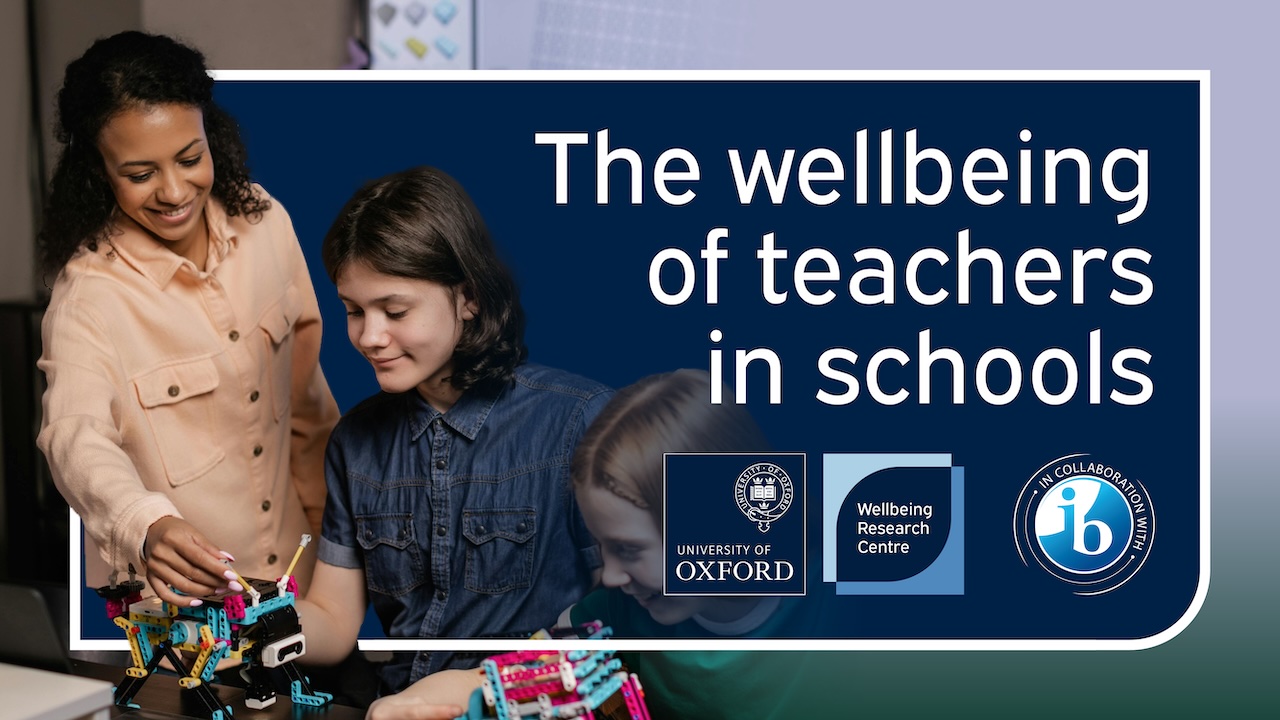The International Baccalaureate (IB) commissioned the Wellbeing Research Centre at the University of Oxford to produce a report on the latest research on teacher wellbeing.
The report, Wellbeing for Schoolteachers, provides the IB, policymakers and educational leaders an understanding of teacher wellbeing, what influences teacher wellbeing, and what evidence-based interventions might be used to improve teacher wellbeing.
One of the most comprehensive reviews of existing research, the findings allowed researchers to develop an evidence-based framework that indicates the drivers of teacher wellbeing. This framework serves as a discussion point for schools to identify drivers that will be most relevant to their school context.
International data shows that teachers report one of the highest levels of occupational stress and burnout on the job compared with other professions. Workload is a prominent factor leading teachers to leave the profession.
This report reveals an increasing body of research indicating that teacher-related factors are some of the most essential elements impacting learning in schools. Importantly, teacher wellbeing has a significant impact on the wellbeing and academic success of students. Research suggests that teacher wellbeing should be one of the first factors schools consider when looking to improve wellbeing across the school community.
Based on the study, some of the key factors that positively impact teacher wellbeing include the following:
- Teacher voice is crucial in designing any intervention to support wellbeing in a particular school context.
- Higher levels of teacher wellbeing are associated with positive relationships among colleagues, students, parents, and leadership; a positive school climate; and effective leadership support.
- Workplace recognition and continuing professional development are positively associated with teacher wellbeing.
Dr. Laura Taylor, Deputy Director of the Wellbeing Research Centre at the University of Oxford and Lead Researcher for the project, notes: “As we navigate the crucial intersection of education and wellbeing, the research evidence highlights the profound importance of prioritising teacher wellbeing. By investing in the health and happiness of educators, we not only empower them to thrive but also lay the foundation for a positive ripple effect on students, schools, and the broader education system.”
The full report can be found at wellbeing.hmc.ox.ac.uk/schools.
Wellbeing for Schoolteachers is a companion report to another study by the Wellbeing Research Centre on student wellbeing: Wellbeing in Education in Childhood and Adolescence.
